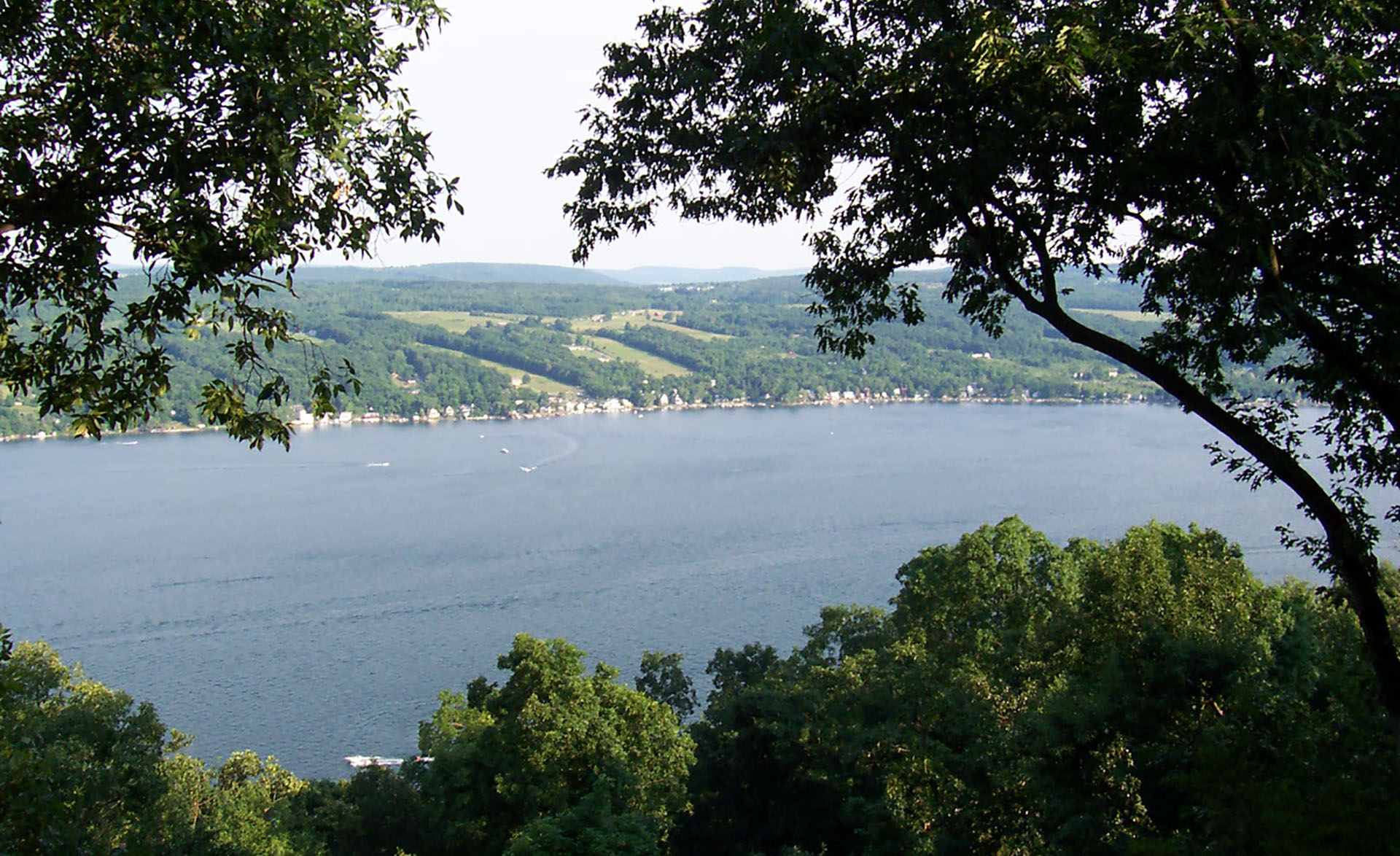REPLACING FAILING SEPTIC TANKS IN THE FINGER LAKES OF NEW YORK

Challenge:
The Finger Lakes, located in western New York, were formed by the glacial carving of stream valleys 2 million years ago. The result is terrain that consists of steep slopes and lots of rock that is difficult to excavate.
The Town of Jerusalem recognized that septic systems were problematic in their lake setting and required inspections every five years. If a septic system was determined to have failed inspection, corrections were required, which often included the installation of a new septic system at a cost of $20,000 to $30,000. In many instances there was not enough room to install a new septic system. The town knew that a central sewer system was needed despite their challenging site conditions:
- Homes are lakeside on small lots and often sited well below grade of the road (some 25 and 50 feet); pumping uphill meant high head conditions
- The small lots meant that little space was available for septic tank leach fields; a high water table and ineffective subsurface drainage compounded the problem
- Septic tanks were leaking into the lake, polluting the water and causing algae blooms
A gravity sewer system was estimated to cost $6 million.
Solution:
After visiting other pressure sewer systems in the region, the Town of Jerusalem decided that ALL-TERRAIN SEWER from E/One was the most economically and environmentally favorable sewer solution.
The pressure sewer system cost approximately half the cost of the gravity sewer estimate, coming in at $3.2 million.
Because pressure sewer mains are small (4- to 6-inches vs as much as 18- to 24-inches for gravity sewer), follow the contour of the terrain, and need only be installed just below the frost line, installation costs are much lower. Reduced rock excavation resulted in a savings of $775,000 vs gravity sewer installation.
Pressure sewer also eliminated the need for 12 lift stations, saving an additional $900,000.
Result:
Seasonality of the population was a concern: approximately 20 percent are full-time residents. Would lower system flows during the winter cause problems in the system? Despite the lower flows and velocities, the pressure sewer system has not experienced problems with clogs and has not required flushing or other preventive maintenance.
The water quality of Keuka Lake has steadily improved: nutrient and algae levels have decreased, while clarity has increased. The sewer system has allowed property owners to expand their homes, or build entirely new structures, increasing the property values in the area.
Related Article
Thinking Globally and Acting Locally to Preserve a Natural Wonder — Septic tank replacement project used pressure sewer and E/One grinder pumps around Keuka Lake in New York's Finger Lakes region. Modern Pumping Today
Similar Case Studies
- Overview
- Product Catalog
- Product Specifications
- Builders
- Engineers
- Municipalities
- Homeowners
- Knowledge Center
- Design Center
- Sales & Service
- Case Studies
- Rincon Point, California
- Mornington Peninsula, Australia
- Paradise Valley, Arizona
- Locke, California
- Brentwood, Tennessee
- Sacheen Lake, WA
- Flathead Lake, Bigfork, MT
- Big Lake, Skagit County, WA
- Perkins Pond, New Hampshire
- Bloomingdale, Georgia
- Peralta, New Mexico
- Martha's Vineyard, Mass
- Promontory, Park City, Utah
- Reynolds Lake Oconee, Georgia
- Dennis Port, Massachusetts
- Great Sky, Georgia
- Honea Path, South Carolina
- Knoxville, Tennessee
- Hilton Head, South Carolina
- Nashville, Tennessee
- Sweetwater Ranch, Texas
- Jerusalem, New York
- Fairfield Glade, Tennessee
- Florida Keys
- Kohanaiki, Hawaii
- Fallingwater, Pennsylvania
- Seven Lakes, Nova Scotia
- Port Orchard, Washington
- Confluence, PA
- Indianapolis, Marion County, IN
- Patchogue, NY
- Drottningholm, Sweden ›
- Norrtälje, Sweden ›
- Kitö Island, Finland ›
- Martin County, FL
- Article Reprints
- Request More Information
- Distributor Connection
- ISO 9001:2015